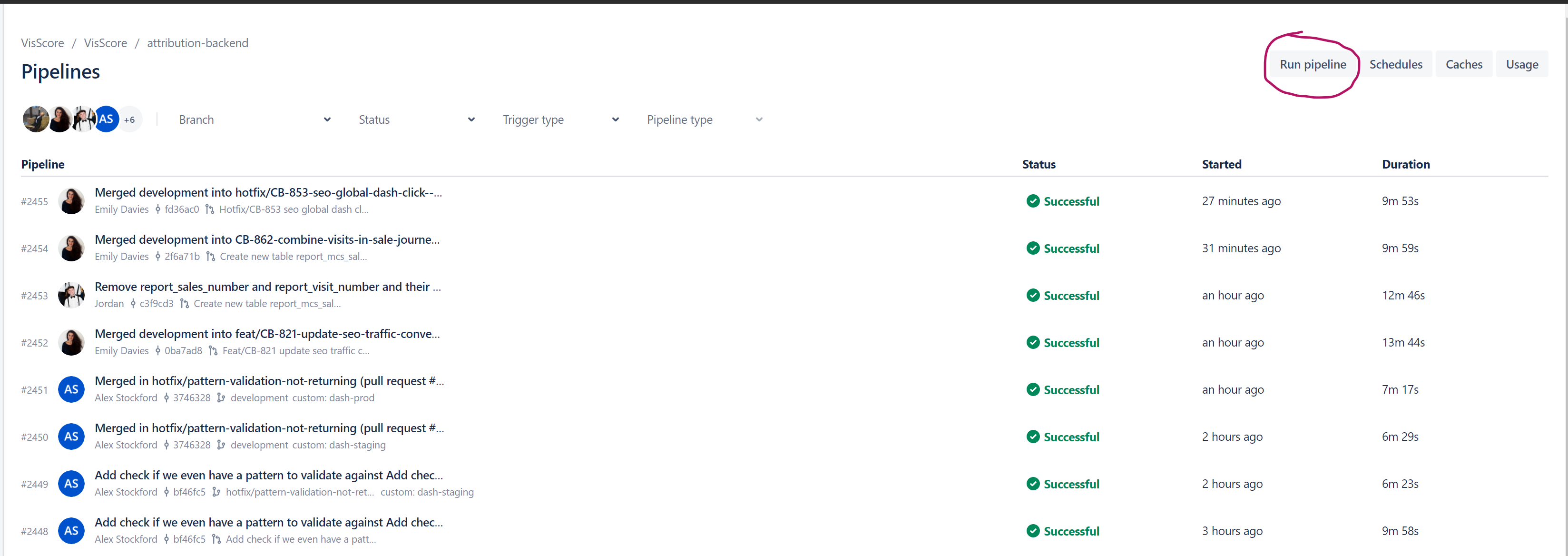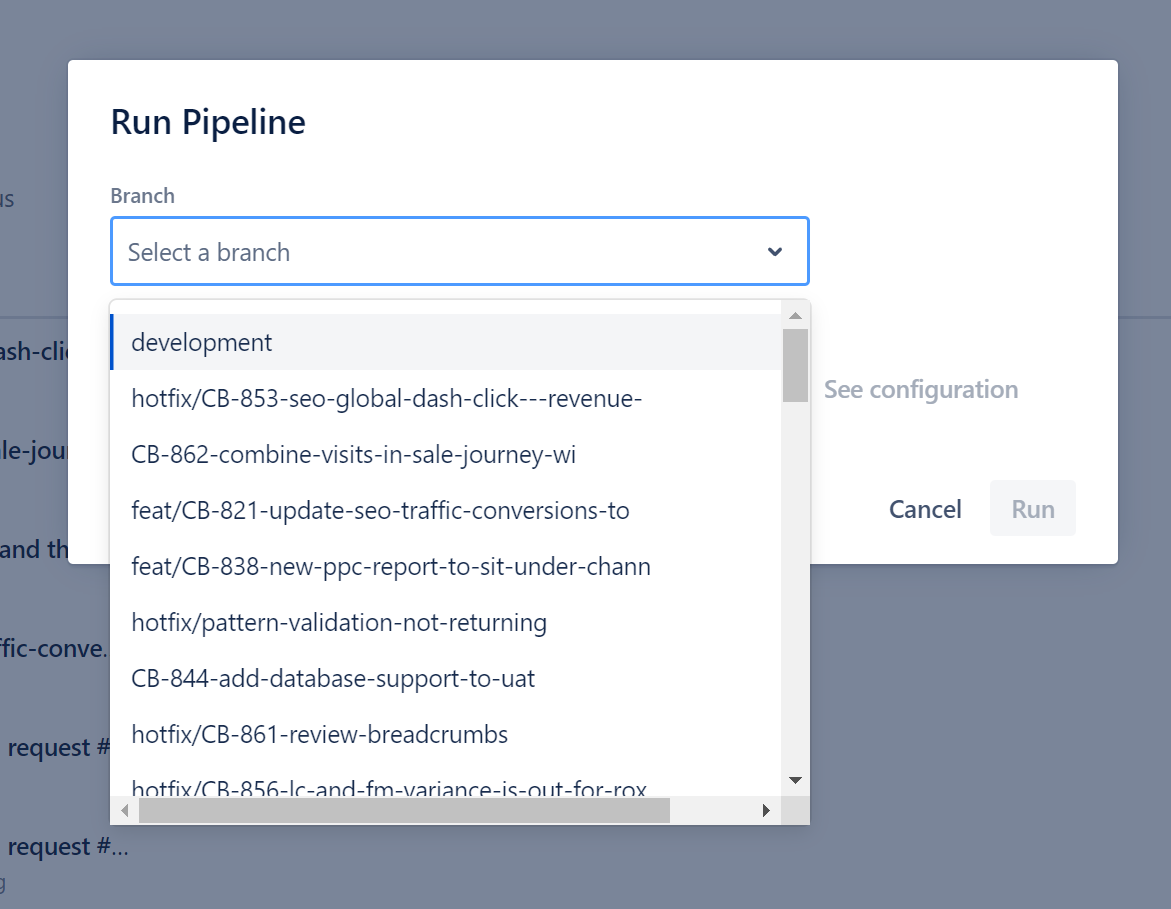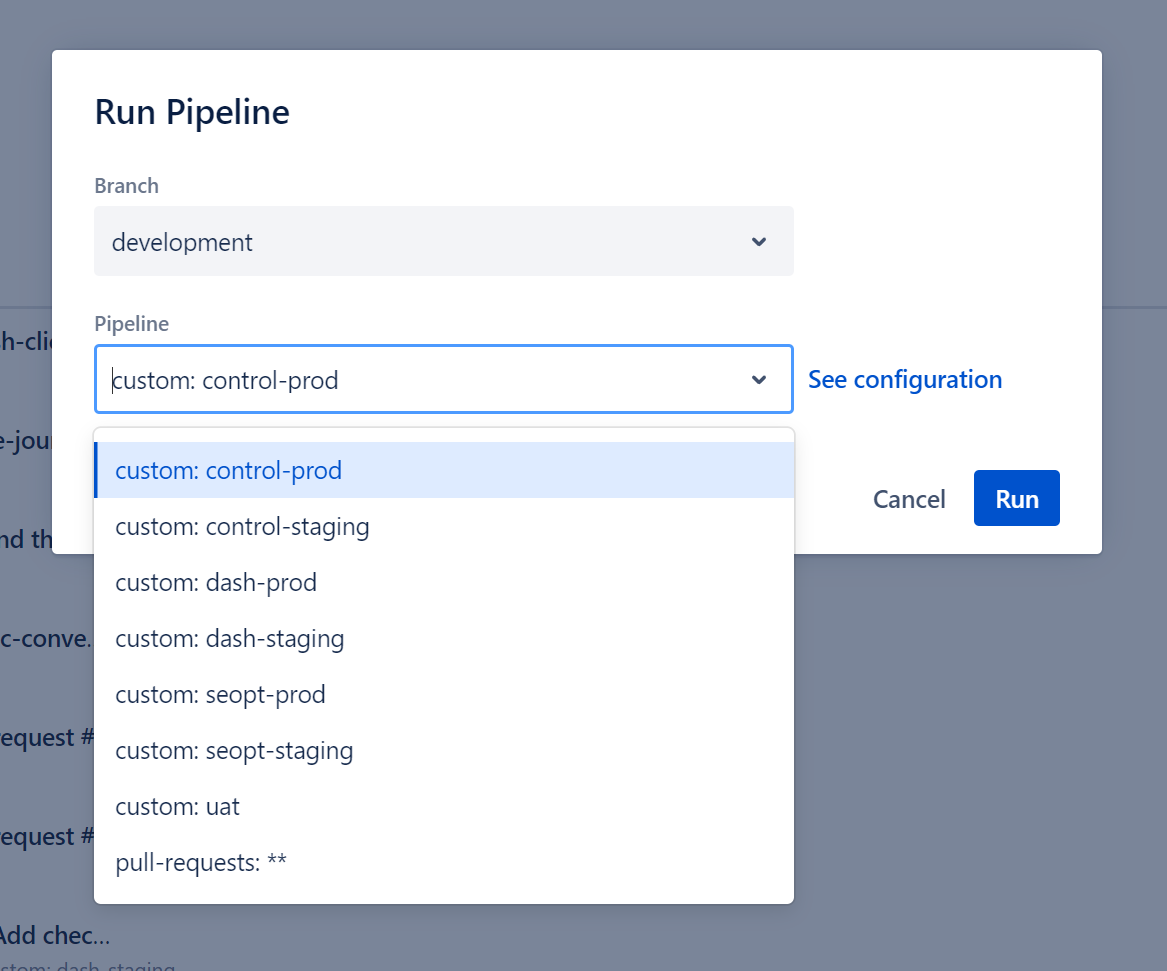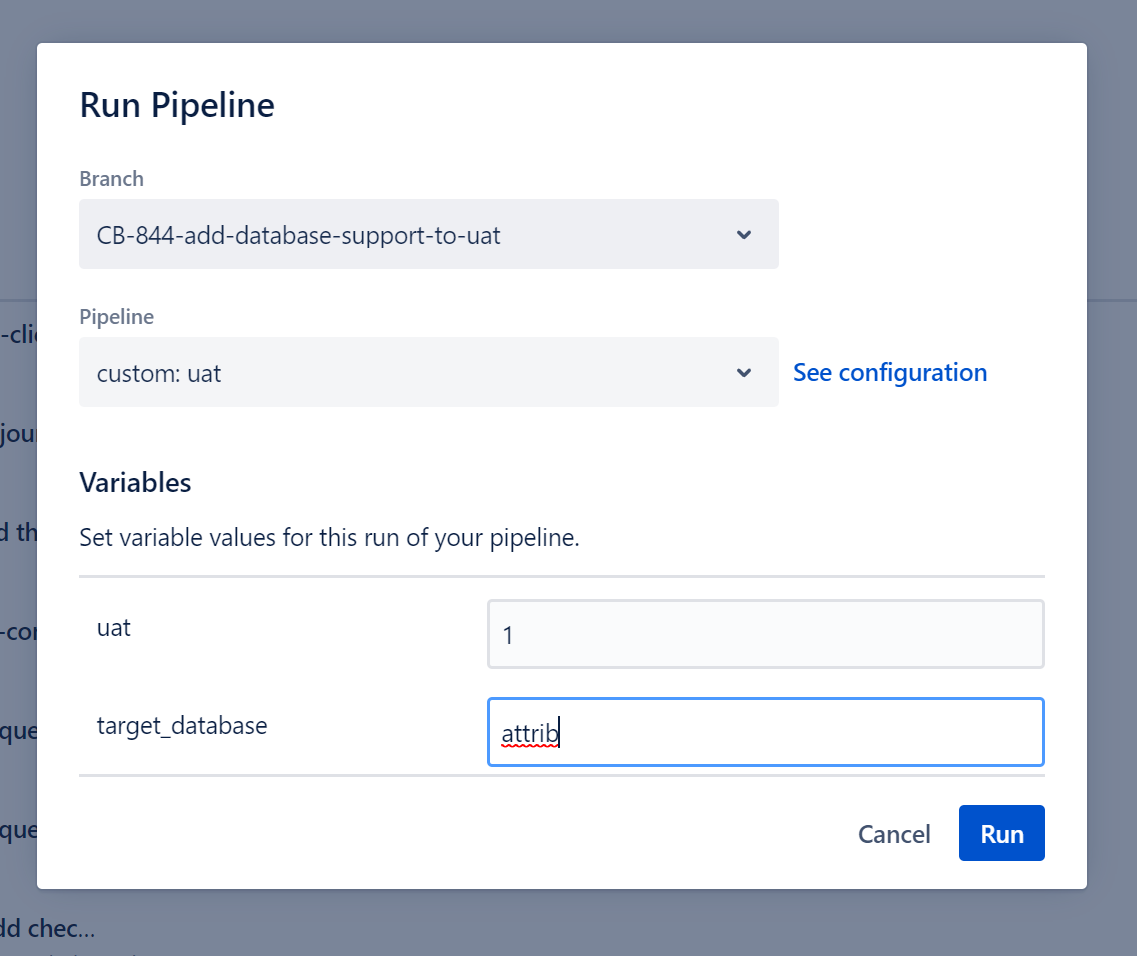UAT Deployment¶
UAT¶
UAT environments are essentially copies of the Staging environment above. Differing slightly from the others, there are actually three UAT environments attached to this pipeline. When running the pipeline you will be asked to specify which environment you wish to deploy to; choosing 1 or 2. Your changes will then be accessible at uat1.withcubed.com, where 1 is the number you chose. Anyone can deploy to UAT environments.
You will also be asked to specify the attrib target database with which you would like to associate the environment. Attrib databases store configuration for which accounts (and therefore which client databases) should be accessible by a given environment. The default is simply attrib, which is the same database that Staging is configured to use. So if you use the default value, your frontend changes will be deployed to your chosen UAT environment backed by the normal staging database.
However if you have written a feature that requires specific data to test or demonstrate, you can pass in your local attrib database name (or any other) in order to associate the environment with a different database. For example, you could pass in devname_attrib as the database to use, and the staging environment would use devname_attrib for its config and associated accounts, essentially mirroring your local development environment but in a way that is accessible to others. This is especially useful where your feature contains significant or multiple Django migrations that might irrevocably change a database; it is far easier to repair or recover your private database than it is a shared one!
Connection timed out when running UAT pipeline?!
If you run a UAT pipeline and you face an error like 'Failed to connect to the host via ssh: ssh: connect to host <hostname> port 22: Connection timed out, this is likely due to bitbucket updating their pool of IP addresses for their build agents. You can find the latest IP addresses here. You will need to update the firewall rules inside the security group bitbucket-pipeline-ssh.
How-to guide:¶
From this page you can run one of our pipelines. Each pipeline is associated with an environment as listed below.

Step 1: Click the button highlighted above.

Step 2: Select the branch you wish to deploy to a Staging or UAT environment.

Step 3: select the environment you wish to deploy to, and click Run.

UAT Environments
if you are deploying to a UAT environment, please specify which one (1-2) you wish to deploy to, and which attrib database you wish to target. See below for more information. When specifiying a database, you should specify your devname_attrib database and not your devname_attrib_client database.
It might seem counterintuitive to pass in the name of your devname_attrib database when all the data you want to review is in devname_attrib_client. However as above, our attrib databases hold all of our client information such as users, passwords, account data and so on. From this database, we can connect to whatever client database (eg devname_attrib_client) we wish, and this will be done automatically for you from the data held in devname_attrib.attrib_account.connection.